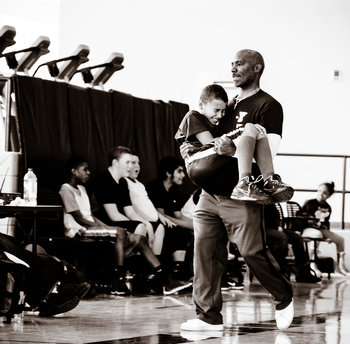|
| |
The id is the part of the psyche that represents the instinctual drives of a person. The id demands immediate gratification of primal needs and desires without consideration of realities such as nature, scarcity, morality, society, culture or consequences. The id operates at an unconscious level and serves a fundamental role as the motivational force that drives human behavior. The following are its basic characteristics.
Bodily needs | Wants and desires | Impulses | Fantasies | Dreams | Generation of symbolism | Pleasure seeking | Demands immediate gratification | Instincts | Operates at the unconscious level | Reproductive drive | Self-preservation | Aggression | Destructive and self-destructive tendencies | Will to power | Raw primitive emotions | Illogical | Understands nothing about reality | No sense of time | No sense of morality | No sense of consequences | Present at birth |
Id vs EgoAccording to Freudian psychoanalytic theory, there are three components of the human psyche: the id, ego and super-ego. The id is the powerhouse of the mind that pushes an individual to be active and alive. The ego tries to serve the demands of the id by working within the many constraints of the real world. The super-ego is the socially, culturally and morally aware part of the psyche that helps the ego to accomplish this task. Although this structure may be quite functional, the id, ego and super-ego are in a state of constant conflict such that the mind according to Freud is a turbulent place of competing forces.UnconsciousThe id operates at an unconscious level. However, people may be aware of their instinctual drives. The id also generates fantasies, dreams and symbolism that may be felt at the conscious level.Pleasure PrincipleThe id operates according to the pleasure principle that demands instant gratification of its desires without regard to others or consequences.Instinctual DrivesFreud identifies two primary instincts: Eros, the life force and Thanatos, the death instinct. Eros represents desires for pleasure, reproduction and self-preservation. Thanatos represents aggressive, destructive and self-destructive instincts. Primary ProcessThe processes driven by the id are known as the primary process. These include drives and generation of fantasy, symbolism and dreams.Secondary ProcessThe secondary process is the work of the ego that tries to accomplish things in reality in a way that is more social, ethical, pragmatic, long-term and strategic.Next: Ego
If you enjoyed this page, please consider bookmarking Simplicable.
© 2010-2023 Simplicable. All Rights Reserved. Reproduction of materials found on this site, in any form, without explicit permission is prohibited.
View credits & copyrights or citation information for this page.
|































